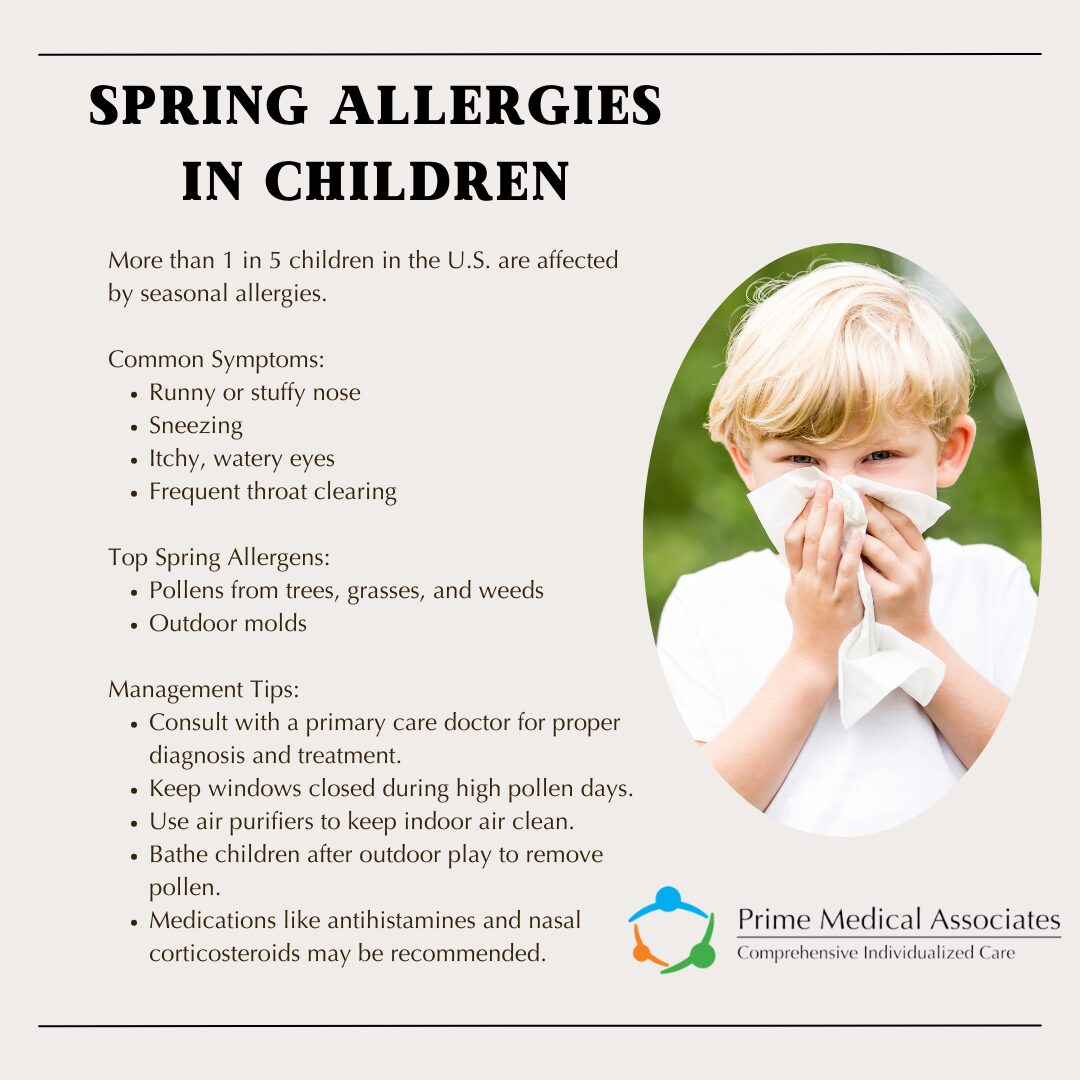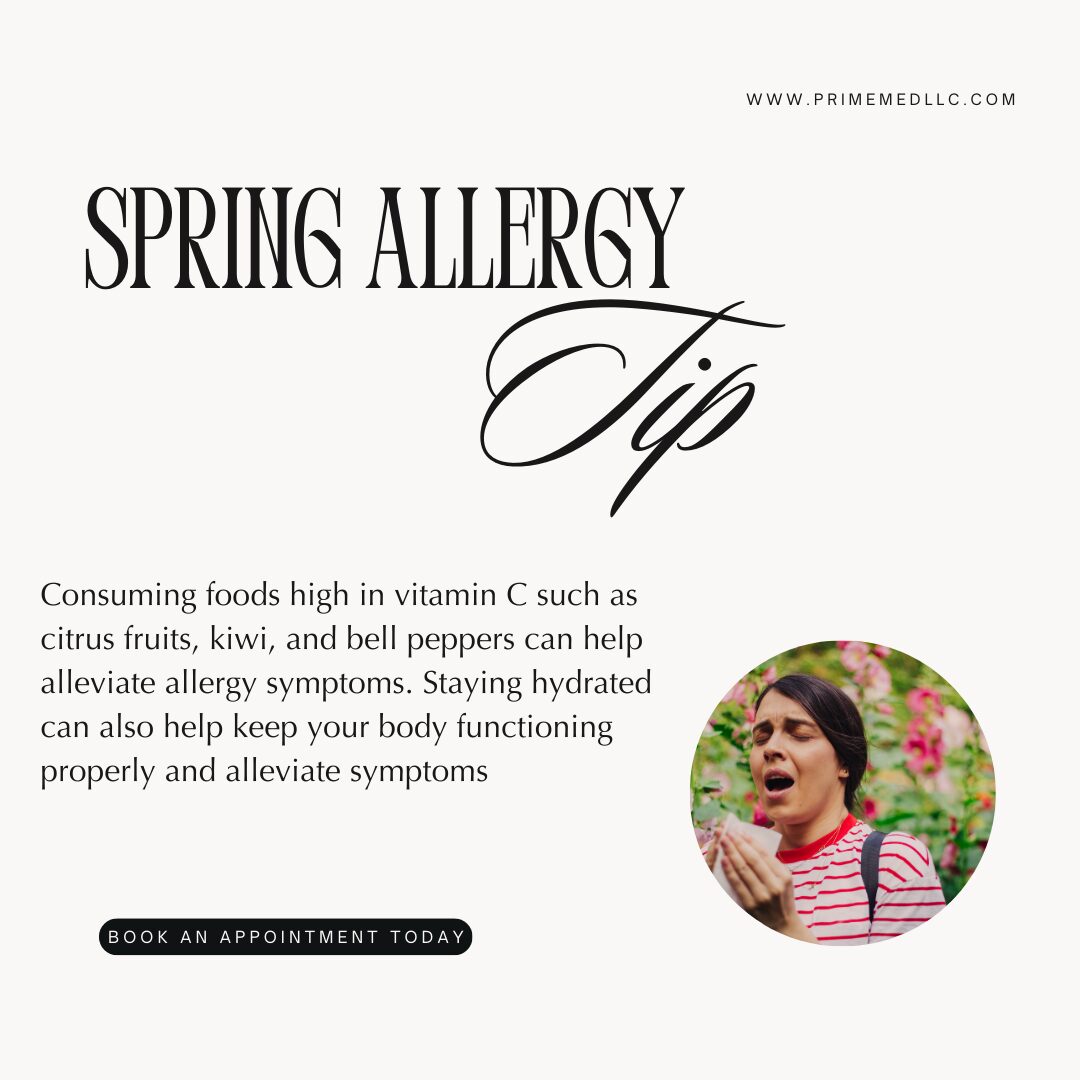
When the spring sun comes out, so do those pesky allergies! Allergens, such as trees, grass, weeds, and pollen, can cause symptoms like a runny nose and sneezing. Especially if it is a rainy spring season, the plants and mold grow quicker. These seasonal allergies can be referred to as allergic rhinitis or hay fever.

Some of the most common allergies triggers that show during spring are:
- Tree pollen
- Grass
- Mold spores
- Ragweed
Strategies For Allergy Control
One of the first ways to reduce exposure to these allergy triggers is to understand your personal allergy season. When do you typically start experiencing symptoms? This can help you anticipate when to start taking preventative measures. Spring allergies may not be the culprit, individuals who experience respiratory allergies that mimic the common cold may be allergic to certain animals. Along with respiratory allergies, you may experience food allergies or skin allergies. Since there are so many allergies out there, getting allergy testing is important to pinpoint the triggers.
Minimize Exposure
While it might be tempting to open up windows and let the spring air in, this can introduce a significant amount of pollen into your home. It’s better to use air conditioning in your house and car to filter out allergens. If you’ve been outside, consider changing your clothes and showering to remove any pollen from your skin and hair. On hot or windy days, it’s important to avoid going outside or completing yard work. Instead, it’s best to enjoy the outdoors after rain as it helps clear the pollen.
Stay Informed About Pollen Levels
On days when the pollen count is particularly high, try to stay indoors as much as possible. You can usually find information about pollen levels in your area from local weather forecasts or online sources. Generally, the pollen count may be higher during afternoons and evenings so be sure to keep windows closed.
Consider Over-The-Counter Remedies
For mild to moderate allergies, over-the-counter antihistamines, decongestants, and nasal sprays may provide relief. However, it’s important to read the labels carefully and follow the provided instructions. An easy at home remedy to try is a saline nasal rinse solution. Saline solutions are available for purchase as pre-made solutions or in the form of kits that can be mixed with water. When opting for a kit or creating your own saline solution, it’s advisable to use bottled water to minimize the risk of infection.
Seek Medical Help
If over-the-counter remedies aren’t providing enough relief for you, or if your allergies are interfering with your daily life, it may be time to seek medical help. At Prime Medical Associates in Dartmouth, Massachusetts, our experienced team of healthcare professionals can help you manage your allergies effectively.

Your Allies at Prime Medical Associates
At Prime Medical Associates, we understand how frustrating allergies can be. That’s why we’re committed to helping you identify your triggers and manage your symptoms. We offer allergy testing, which can pinpoint the specific allergens that are causing your discomfort. Once we identify these triggers, we can develop a personalized treatment plan that suits your lifestyle.
Our approach to allergy management goes beyond merely treating symptoms. We aim to equip you with the knowledge and tools to proactively manage your allergies. This might involve prescribing medication, recommending lifestyle changes, or providing advice on avoiding allergens.
Remember, allergies are not just a minor inconvenience. They can significantly impact your quality of life. With a combination of self-care strategies and professional medical support, you can minimize your symptoms and maximize your comfort. At Prime Medical Associates, we’re here to guide you every step of the way. Contact us today and start your journey towards an allergy-free spring!
